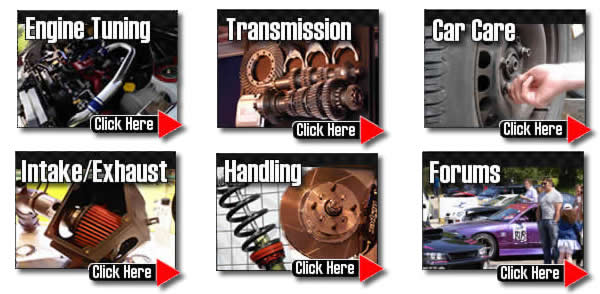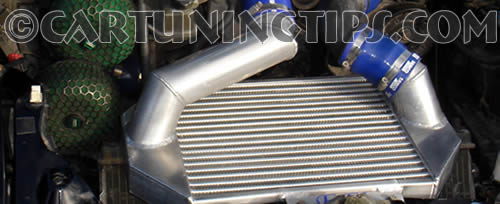Discover "Performance Intercoolers"
We all know that cold Air carries more oxygen that warmer air. You may have noticed that when air is compressed it gets warmer. If you feel the connecting hose on the footpump as you put air into the tire you would notice that a substantial amount of heat can be generated. In a forced air induction engine which uses either a turbo or a supercharger the air charge is much hotter than in an engine without forced induction.
The intercooler works much like a radiator and the cold air from outside is forced through a matrix where the warm charge air is contained. This has the effect of reducing the temperature of the warm air intake. All intercooler is will create drag or slow the flow of intake air coming into the engine, but the benefits of having a colder air charge far outweighs this.
When designing an intercooler much work goes in to preventing this drag effect. The size of the intercooler, along with the dimensions of the internal piping needs to be matched to the requirements of your engine. Bigger is not always better.

The intercooler, usually, is sited in front of the radiator so it can benefit from the cold air as it passes into the engine bay. Some manufacturers have mounted the intercooler on the top of the engine, fitting a Vent to the bonnet allowing the cold air to flow through the intercooler. Perfect siting of the intercooler will often require an excessive amounts of ducting which negates the benefit, so a compromise are usually has to be made in most applications.
The same rules of exhaust design applied to intake design, sudden changes in pipe diameter should be avoided and funnels used instead. Bends should be subtle and gradual and there should be no internal seems particularly on joins which will hinder the air flow.
Standard intercoolers look relatively inefficient when compared with high performance aftermarket ones, and nearly every forced induction car will benefit with higher power figures when an intercooler is fitted.
So will an intercooler make a difference on a NASP engine? Unfortunately the reduction in air temperature is not sufficient to justify the extra drag on the intake air so you would lose power. Intercoolers work well on turbo and supercharged engine. The more boost you are running the better the power gains will be.
Check out TorqueCars new YouTube channel, and see their awesome new content...
Feedback
Please use our forums if you wish to ask a tuning question, and please note we do not sell parts or services, we are just an online magazine.
Help us improve, leave a suggestion or tip

